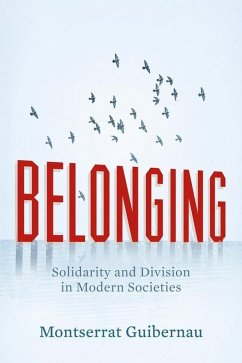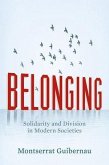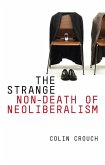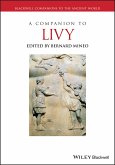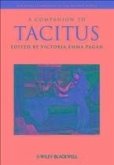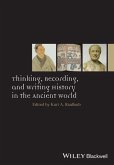It is commonly assumed that we live in an age of unbridled individualism, but in this important new book Montserrat Guibernau argues that the need to belong to a group or community - from peer groups and local communities to ethnic groups and nations - is a pervasive and enduring feature of modern social life.
The power of belonging stems from the potential to generate an emotional attachment capable of fostering a shared identity, loyalty and solidarity among members of a given community. It is this strong emotional dimension that enables belonging to act as a trigger for political mobilization and, in extreme cases, to underpin collective violence.
Among the topics examined in this book are identity as a political instrument; emotions and political mobilization; the return of authoritarianism and the rise of the new radical right; symbols and the rituals of belonging; loyalty, the nation and nationalism. It includes case studies from Britain, Spain, Catalonia, Germany, the Middle East and the United States.
This wide-ranging and cutting-edge book will be of great interest to students and scholars in politics, sociology and the social sciences generally.
The power of belonging stems from the potential to generate an emotional attachment capable of fostering a shared identity, loyalty and solidarity among members of a given community. It is this strong emotional dimension that enables belonging to act as a trigger for political mobilization and, in extreme cases, to underpin collective violence.
Among the topics examined in this book are identity as a political instrument; emotions and political mobilization; the return of authoritarianism and the rise of the new radical right; symbols and the rituals of belonging; loyalty, the nation and nationalism. It includes case studies from Britain, Spain, Catalonia, Germany, the Middle East and the United States.
This wide-ranging and cutting-edge book will be of great interest to students and scholars in politics, sociology and the social sciences generally.
Dieser Download kann aus rechtlichen Gründen nur mit Rechnungsadresse in D ausgeliefert werden.
"A well-written and wide-ranging overview of many important ideas about belonging."
Journal of Social Policy
"A thought-provoking book on fundamentally important issues."
Sociology
"A rich, sound and consistent book within the classical political science tradition."
Journal of Catalan Intellectual History
"In Belonging Professor Guibernau skilfully deconstructs the many differing elements that determine the individual's identity. In a world where conflicting trends, tendencies and tensions compete to define us, it is a timely analysis of the increasing complexities influencing much of the contemporary human predicament. It will become a standard work on the subject."
Lord Smith of Clifton
"Montserrat Guibernau reformulates the concept of belonging through an in-depth exploration of mechanisms of solidarity and psychological connections between citizens and communities. The author takes us beyond debates on national identity and nationalism by deepening our understanding of loyalty, freedom and trust - three dimensions that have been neglected for too long by social scientists and political authorities - in divided polities. This book is theorerically rich and highly accessible."
Alain Gagnon, Université du Québec à Montréal
"How to define and interpret the relationship between the individual and community? Guibernau demonstrates possibilities of new understanding of this almost secular problem by introducing the newly defined term belonging in mutual tension with identification and nationalism. Theoretical reflections are connected with pressing political problems of our times. This approach is rich on inspiration and intellectual challenge for all social sciences."
Miroslav Hroch, Charles University, Prague
Journal of Social Policy
"A thought-provoking book on fundamentally important issues."
Sociology
"A rich, sound and consistent book within the classical political science tradition."
Journal of Catalan Intellectual History
"In Belonging Professor Guibernau skilfully deconstructs the many differing elements that determine the individual's identity. In a world where conflicting trends, tendencies and tensions compete to define us, it is a timely analysis of the increasing complexities influencing much of the contemporary human predicament. It will become a standard work on the subject."
Lord Smith of Clifton
"Montserrat Guibernau reformulates the concept of belonging through an in-depth exploration of mechanisms of solidarity and psychological connections between citizens and communities. The author takes us beyond debates on national identity and nationalism by deepening our understanding of loyalty, freedom and trust - three dimensions that have been neglected for too long by social scientists and political authorities - in divided polities. This book is theorerically rich and highly accessible."
Alain Gagnon, Université du Québec à Montréal
"How to define and interpret the relationship between the individual and community? Guibernau demonstrates possibilities of new understanding of this almost secular problem by introducing the newly defined term belonging in mutual tension with identification and nationalism. Theoretical reflections are connected with pressing political problems of our times. This approach is rich on inspiration and intellectual challenge for all social sciences."
Miroslav Hroch, Charles University, Prague

